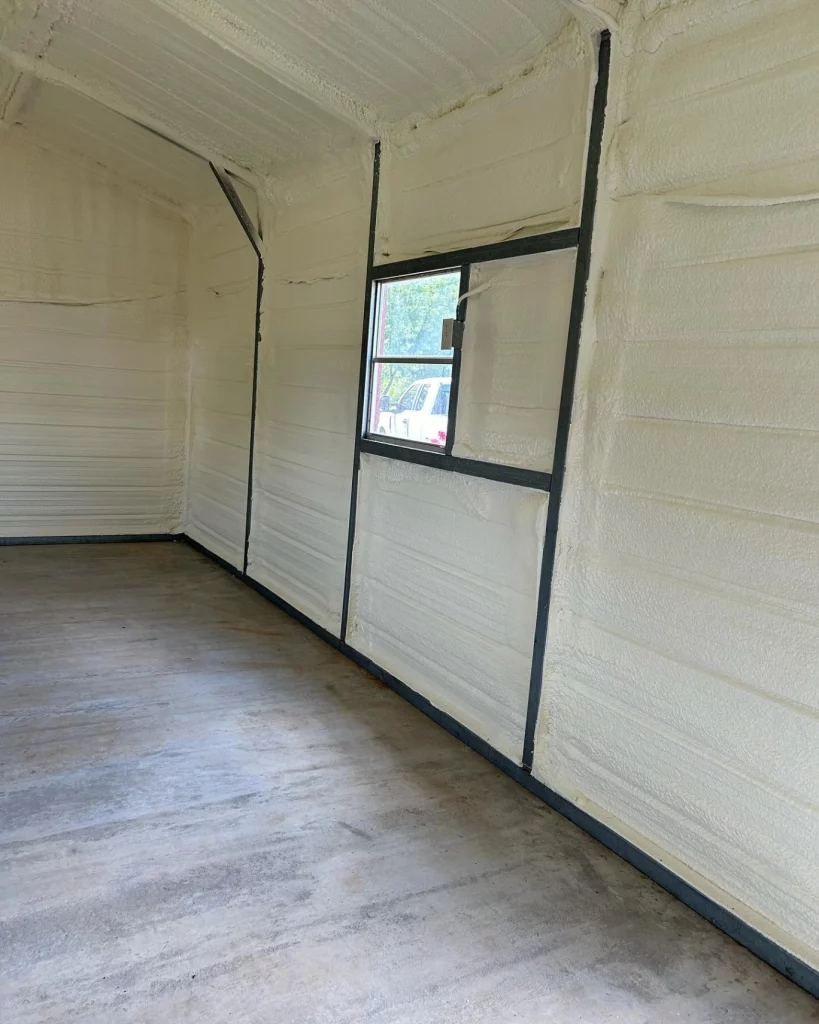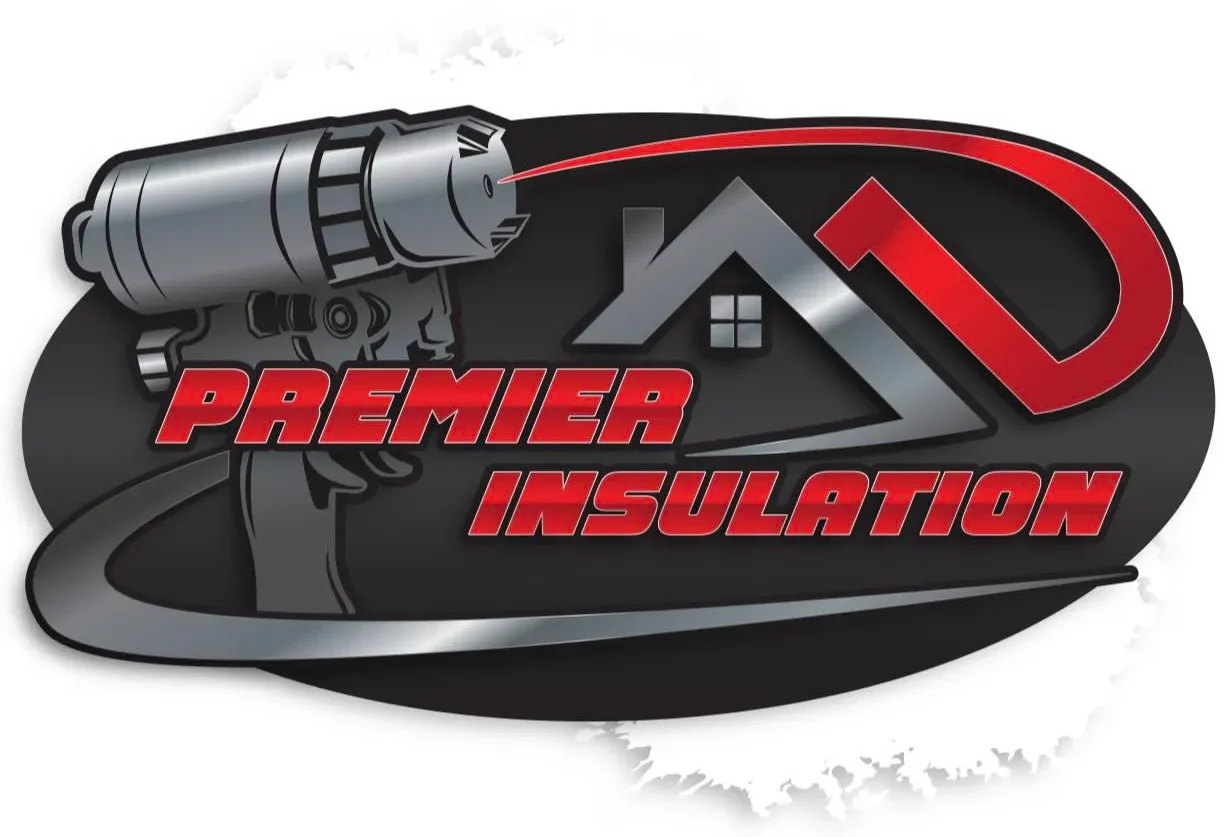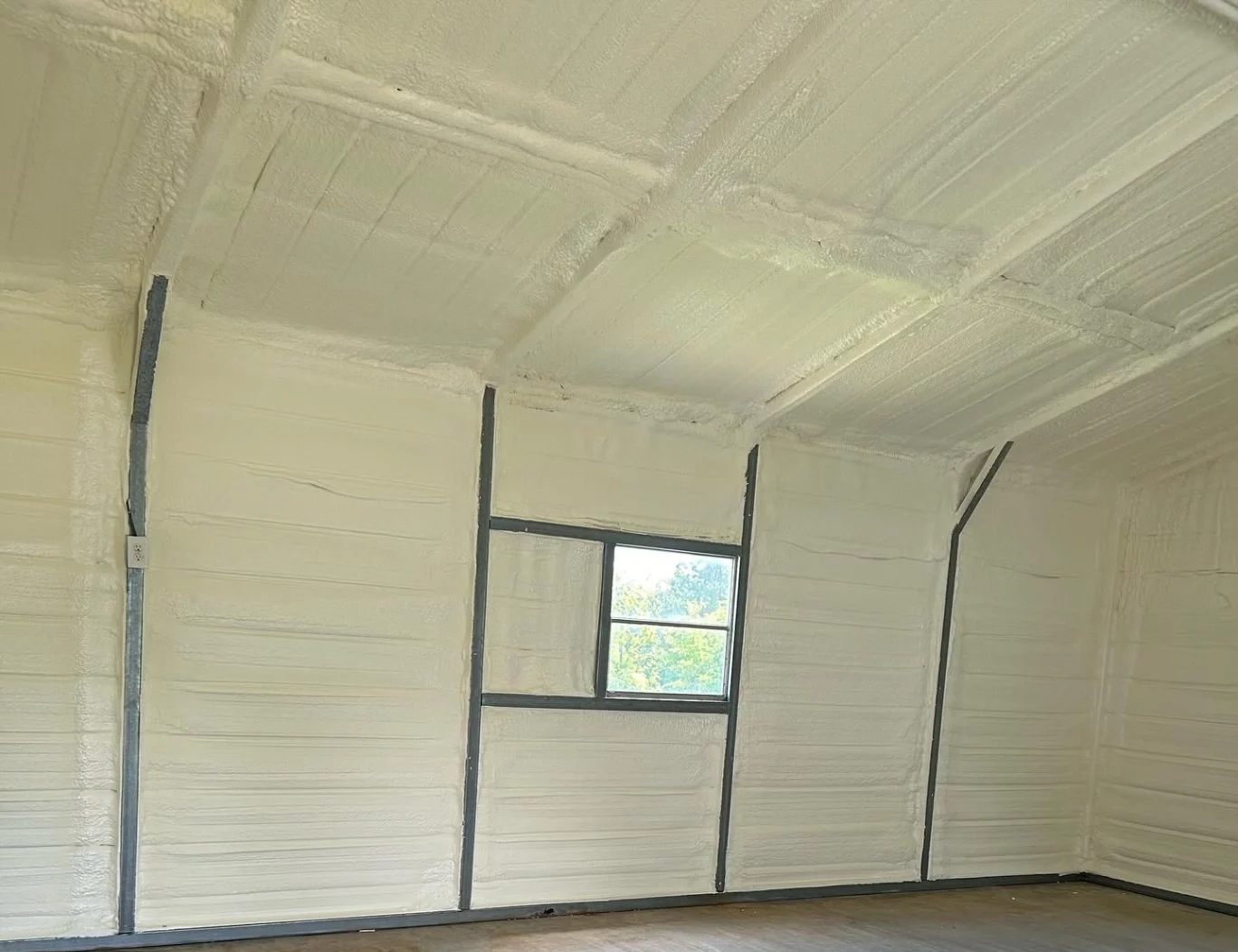Spray foam insulation performs exceptionally well in Tallahassee’s challenging climate conditions, withstanding both intense summer heat and persistent humidity levels that average 70-85% year-round. The material’s cellular structure and chemical composition make it particularly resistant to thermal degradation and moisture infiltration that plague traditional insulation materials in North Florida’s subtropical environment.
Modern polyurethane spray foam maintains its insulating properties and structural integrity even when exposed to temperatures exceeding 200°F and relative humidity approaching saturation levels. This performance stems from the foam’s closed-cell structure, which creates an impermeable barrier against moisture while maintaining consistent R-values regardless of ambient conditions.
Drawing from extensive field applications across North Florida’s climate zones, this analysis examines spray foam’s technical specifications, performance data, and practical considerations for property owners evaluating insulation solutions in Tallahassee’s demanding environmental conditions.
Performance Under Extreme Heat Conditions
Tallahassee’s summer temperatures frequently reach 95°F with heat indices climbing above 110°F, creating severe thermal stress on building materials. Spray foam insulation demonstrates remarkable stability under these conditions due to its thermosetting polymer structure. Unlike thermoplastic materials that soften under heat, polyurethane foam maintains its dimensional stability and insulating properties throughout temperature fluctuations.
The material’s temperature resistance extends well beyond typical ambient conditions. Laboratory testing reveals that quality spray foam maintains structural integrity at temperatures up to 250°F, providing substantial safety margins for attic applications where surface temperatures can exceed 140°F during peak summer months.
Bonus Tip: Attic ventilation systems work more effectively with spray foam because the material doesn’t sag or shift under heat stress, maintaining consistent air gaps that traditional insulation often compromises.
| Insulation Type | Max Operating Temp | R-Value Retention at 95°F | Dimensional Stability |
|---|---|---|---|
| Closed-Cell Spray Foam | 250°F | 100% | Excellent |
| Open-Cell Spray Foam | 200°F | 98% | Good |
| Fiberglass Batts | 180°F | 85% | Poor |
| Cellulose | 160°F | 75% | Poor |
Moisture Resistance and Humidity Control
North Florida’s humidity presents unique challenges for building materials, with dew points frequently exceeding 70°F and creating ideal conditions for condensation and mold growth. Spray foam’s moisture resistance capabilities address these concerns through multiple mechanisms that traditional insulation cannot replicate.
Closed-cell spray foam achieves a vapor permeance rating below 1.0 perm, classifying it as a vapor retarder under ASTM E96 testing standards. This low permeance prevents moisture migration through the building envelope while eliminating the thermal bridging that occurs when traditional insulation becomes saturated with water vapor.
The material’s hydrophobic properties prevent water absorption that degrades other insulation types. According to the Spray Polyurethane Foam Alliance, properly installed spray foam maintains less than 2% water absorption by volume even under prolonged exposure to high humidity conditions.
| Performance Metric | Closed-Cell Spray Foam | Open-Cell Spray Foam | Fiberglass |
|---|---|---|---|
| Vapor Permeance (perms) | 0.8-1.0 | 15-20 | 88 |
| Water Absorption (%) | <2 | 5-8 | 40+ |
| Mold Resistance | Excellent | Good | Poor |
| Air Sealing Capability | Superior | Good | None |
Long-Term Durability in Subtropical Climate
Tallahassee’s climate combines high temperatures, humidity, and seasonal weather variations that test insulation materials over decades of service. Field studies conducted by building science researchers indicate that spray foam installations maintain their performance characteristics for 30+ years when properly applied, significantly outperforming alternative insulation materials in similar conditions.
The material’s resistance to UV degradation becomes particularly important in applications where sunlight exposure occurs during construction or through building envelope gaps. Quality spray foam formulations include UV stabilizers that prevent breakdown from solar radiation, though direct sunlight exposure should still be minimized through proper installation practices.
Technical Performance Data for Tallahassee Climate Zone 2A:
| Property | Measurement | Standard |
|---|---|---|
| Thermal Conductivity | 0.024 BTU·in/hr·ft²·°F | ASTM C518 |
| Compressive Strength | 25-30 psi | ASTM D1621 |
| Tensile Strength | 35-40 psi | ASTM D1623 |
| Service Temperature Range | -40°F to +200°F | ASTM C578 |
| Flame Spread Index | <25 | ASTM E84 |
Seasonal temperature cycling between winter lows around 35°F and summer highs above 95°F creates expansion and contraction stress that can compromise rigid insulation materials. Spray foam’s flexibility allows it to accommodate these thermal movements without cracking or separating from substrate materials.
Air Sealing Benefits in Hot, Humid Climates
Beyond insulation value, spray foam provides comprehensive air sealing that becomes critical in Tallahassee’s climate where conditioned air loss dramatically impacts energy consumption and comfort levels. The material expands to fill gaps and cracks that allow hot, humid outside air to infiltrate building envelopes, creating comfort problems and increasing cooling loads.
Research from Florida Solar Energy Center demonstrates that air sealing improvements can reduce cooling energy consumption by 15-25% in North Florida homes. Spray foam achieves air changes per hour (ACH) ratings below 3.0 compared to 8-12 ACH typical of traditional insulation installations.
The material’s ability to seal irregular surfaces and penetrations eliminates the meticulous detailing required with other air barrier systems. This characteristic proves particularly valuable in retrofit applications where existing construction details may not accommodate traditional weatherization approaches.
Bonus Tip: Spray foam’s air sealing properties help maintain consistent indoor humidity levels, reducing the workload on dehumidification systems that often struggle in Tallahassee’s climate.

Things to Consider Before Making a Decision
Several factors influence spray foam performance and suitability for specific applications in Tallahassee’s climate. Installation timing becomes critical due to temperature and humidity requirements for proper foam expansion and curing. Optimal installation conditions occur when ambient temperatures remain between 60-80°F with relative humidity below 85%.
Substrate preparation requires additional attention in humid conditions where surface moisture can interfere with foam adhesion. Proper surface preparation and moisture testing ensure successful installation that maintains long-term performance characteristics.
Building ventilation strategies may require modification when spray foam creates tighter building envelopes. Mechanical ventilation systems often need upgrading to maintain indoor air quality standards when natural air infiltration decreases significantly.
Code compliance considerations include fire rating requirements and thermal barrier installations that may differ from other climate zones. Local building officials in Tallahassee may have specific requirements for spray foam applications that influence installation specifications.
Premier Insulation GA’s Specialized Services for North Florida Climate
Given the unique demands of Tallahassee’s subtropical environment, specialized spray foam applications deliver optimal performance for residential and commercial properties.
Closed-Cell Spray Foam Insulation – Provides maximum moisture resistance and structural enhancement ideal for crawl spaces and exterior wall applications where humidity control remains critical.
Open-Cell Spray Foam Insulation – Offers sound dampening and flexibility benefits for interior applications while maintaining air sealing capabilities at lower densities.
Crawl Space Encapsulation – Creates conditioned space solutions that eliminate moisture problems and improve overall building performance in high-humidity conditions.
Air-Sealing Services – Addresses specific infiltration points that compromise energy efficiency and comfort levels in hot, humid climates.
Common Questions About Spray Foam in High Heat and Humidity
When is the best time to install spray foam in Tallahassee’s climate?
Covers optimal installation timing and weather conditions
Will spray foam installation require changes to my HVAC system?
Addresses ventilation modifications needed
How quickly does spray foam pay for itself in Tallahassee’s climate?
Discusses payback periods specific to the climate
Can spray foam be installed in occupied buildings during hot weather?
Covers installation logistics in hot conditions
Does spray foam prevent condensation problems in crawl spaces?
Addresses moisture control benefits
Bonus Tip: Spray foam installations often qualify for energy efficiency rebates and tax credits that help offset initial costs while providing long-term performance benefits.
Making the Right Choice for Your Property
Spray foam insulation provides proven performance advantages in Tallahassee’s demanding climate through superior moisture resistance, thermal stability, and air sealing capabilities that traditional materials cannot match. The material’s long-term durability and energy performance justify the investment for property owners seeking reliable solutions to North Florida’s unique environmental challenges.
Success depends on proper installation timing, adequate surface preparation, and appropriate system selection based on specific application requirements. Property owners should evaluate their current energy performance, comfort issues, and long-term occupancy plans when considering spray foam upgrades.
Get Expert Guidance for Your Insulation Project
Determining the optimal insulation strategy for Tallahassee’s climate requires understanding your specific building characteristics and performance goals. Premier Insulation GA brings extensive experience with spray foam applications in North Florida’s challenging environmental conditions.
Professional evaluation ensures proper material selection and installation techniques that maximize performance and longevity. Contact Premier Insulation GA at (229) 554-3939 to schedule a comprehensive assessment of your insulation needs and explore solutions tailored to your property’s requirements
FAQS
How does spray foam maintain effectiveness over time in hot, humid conditions?
Spray foam’s cellular structure remains stable under thermal cycling and moisture exposure typical of North Florida climate. The material maintains its R-value and air sealing properties for 30+ years when properly installed, unlike traditional insulation that can lose effectiveness due to settling, moisture absorption, or thermal bridging.
What maintenance requirements exist for spray foam in Tallahassee’s climate?
Properly installed spray foam requires minimal maintenance beyond periodic visual inspection for damage from pests or mechanical systems. The material doesn’t settle, shift, or degrade from humidity exposure, eliminating the replacement cycles common with other insulation types.
Can spray foam handle hurricane-force winds and pressure changes?
Spray foam’s adhesive properties and structural reinforcement capabilities help buildings resist wind pressure and debris impact during severe weather events. The material doesn’t shift or become displaced like loose-fill insulation, maintaining performance even after storm events.
Does spray foam affect indoor air quality in humid climates?
Quality spray foam improves indoor air quality by preventing outdoor pollutants, allergens, and humidity from infiltrating buildings. The material doesn’t support mold growth and eliminates pathways for contaminated air that compromise comfort and health.
How does spray foam compare to other insulation options for energy savings?
Field studies in similar climate zones show 20-40% greater energy savings with spray foam compared to traditional insulation, primarily due to superior air sealing and consistent R-value performance under varying temperature and humidity conditions.


